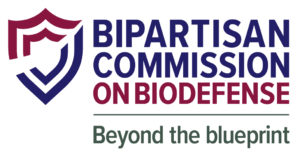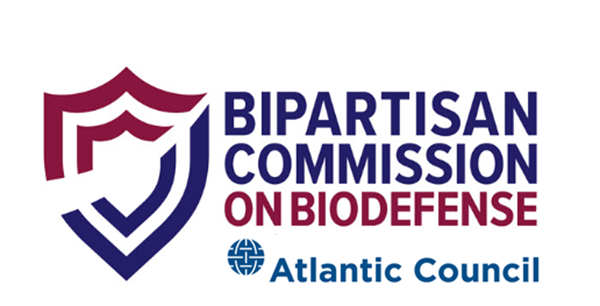Bold Action can End Era of Pandemic Threats by 2030

FOR IMMEDIATE RELEASE
Contact: Steve Aaron, SRA Communications, (717) 554-8614, steve@SRACommunications.com
BOLD ACTION CAN END ERA OF PANDEMIC THREATS BY 2030
Commission Calls on Federal Government to Urgently Implement Recommendations in New ‘Apollo Program’ Using Same Ambition and Ingenuity that Landed Humans on the Moon
WASHINGTON, D.C. (Jan. 26, 2021) – The Bipartisan Commission on Biodefense is calling on the federal government to urgently implement the recommendations specified in its new report, The Apollo Program for Biodefense: Winning the Race Against Biological Threats, as COVID-19 continues to wreak havoc in the United States and all over the world. Released widely today, the report details an ambitious program to develop and deploy the technologies needed to defend against all biological threats, empower public health, and prevent pandemics. The Commission argues if the United States acts now, this Apollo Program could effectively end the era of pandemic threats by 2030.
“While the outsized effects of COVID-19 demonstrate how vulnerable the United States is to biological threats, our response to COVID-19 also illuminates the country’s astounding potential in terms of resources, manpower, and creativity,” said Commission Co-Chair, former Senator Joe Lieberman. “The rapid creation of multiple COVID-19 vaccines speaks to that limitless potential.”
“It is our belief that with the right encouragement and policies, groundbreaking and lifesaving technologies could be American reality before the end of this decade, creating a layered and effective defense against future biological threats,” said Commission Co-Chair, former Homeland Security Secretary Tom Ridge. “Now is the time for an Apollo Program for Biodefense – with the same ambition and ingenuity that put the first human on the Moon in 1969.”
To achieve the results sought in this new report, the Commission urges the Administration and Congress to include funds for The Apollo Program for Biodefense as part of a unified biodefense budget and in the President’s Budget Request; appropriate long-term, multi-year funding for the Program; and fully implement the remaining recommendations laid out in the Commission’s 2015 National Blueprint for Biodefense.
With ambitious technology goals in mind, the Commission’s recommended Program would ideally deploy medical countermeasures within days or in advance of a biological event, detect a novel biological threat at the first human cluster, and enable the public to gather in spaces built to defend against pathogen transmission. The United States must invest in innovation, achieve goals quickly, and engage and motivate America’s entrepreneurial spirit.
The full report may be accessed here. For interviews with Commission leadership, please contact Steve Aaron at steve@SRACommunications.com.
About the Bipartisan Commission on Biodefense
The Bipartisan Commission on Biodefense was established in 2014 to conduct a comprehensive assessment of the state of U.S. biodefense efforts, and to issue recommendations to foster change. The Commission’s 2015 report, A National Blueprint for Biodefense: Leadership and Major Reform Needed to Optimize Efforts, identified capability gaps and recommended changes to U.S. policy and law to strengthen national biodefense while optimizing resource investments. Subsequent Commission publications have addressed critical needs for agrodefense, biodefense budgeting, the need for diagnostic tests, and State, Local, Tribal and Territorial capabilities. In September 2018, the White House released the National Biodefense Strategy, a top recommendation from the Blueprint. The Commission continues to assess biodefense challenges and to urge reform. Former Senator Joe Lieberman and former Governor Tom Ridge co-chair the Commission, and are joined by former Senate Majority Leader Tom Daschle, former Representative Jim Greenwood, former Homeland Security Advisor Ken Wainstein, and former Homeland Security and Counterterrorism Advisor Lisa Monaco. Hudson Institute is the Commission’s fiscal sponsor.
